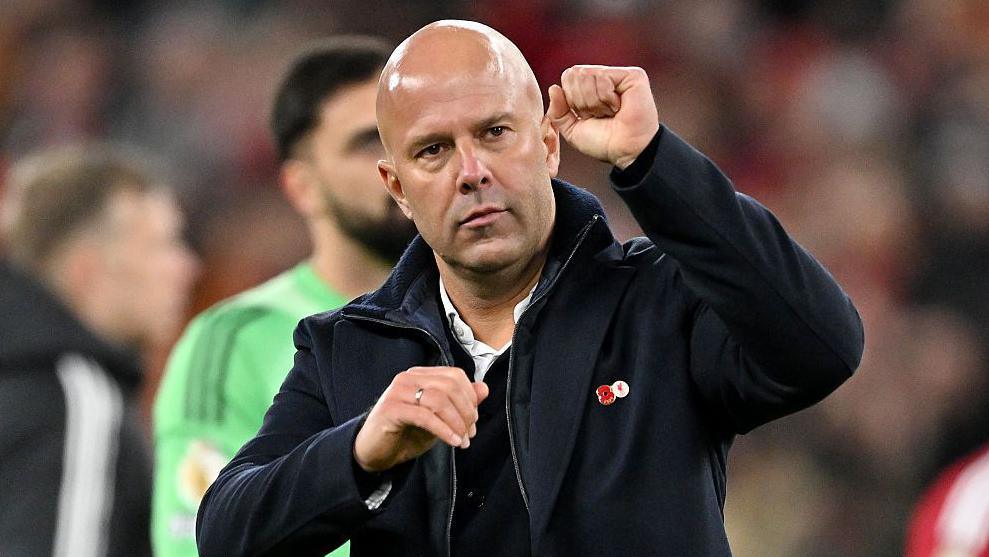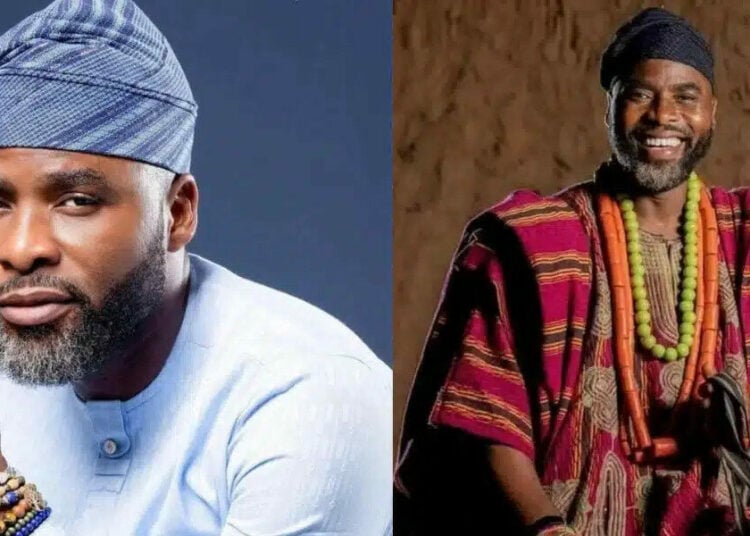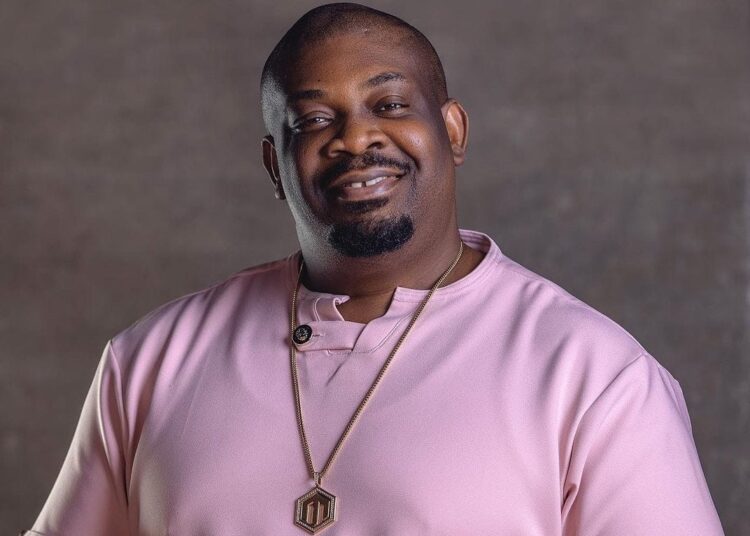Nigeria Fights Back! Trump's 'Christian Genocide' Claims Spark Fierce Rebuttals From FG, Aides.

The United States, under President Donald Trump, officially redesignated Nigeria as a “Country of Particular Concern” (CPC) in December 2020 and again on Friday, October 31. This designation was based on claims that Christianity in Nigeria was facing an “existential threat” due to “mass slaughter” orchestrated by “radical Islamists.” Trump specifically stated that thousands of Christians were being killed, attributing responsibility for this violence to radical Islamist groups and urging U.S. lawmakers to investigate the matter.
In response, Nigeria’s Federal Government, through the Ministry of Foreign Affairs, swiftly and strongly rejected these allegations. Spokesperson Kimiebi Imomotimi Ebienfa and Minister Yusuf Tuggar issued statements asserting that the claims do not reflect the situation on the ground. They emphasized Nigeria’s long-standing tradition of religious harmony, where people of all faiths have lived, worked, and worshipped together peacefully. Minister Tuggar, in particular, unequivocally dismissed any suggestion of genocide in Nigeria, calling such claims unfounded, misleading, and disrespectful to the victims of actual genocidal crimes globally. He reaffirmed Nigeria’s commitment to fighting terrorism, strengthening interfaith harmony, and protecting the lives and rights of all its citizens under the leadership of President Bola Ahmed Tinubu.
A closer look at President Trump’s remarks reveals important distinctions. He deliberately avoided using the term “genocide” and explicitly attributed the violence to “radical Islamists,” rather than the Nigerian state or the broader Muslim population. This nuance, highlighted by analysts like Gimba Kakanda, aligns with Nigeria’s position that the violence stems from extremist groups and complex socio-security dynamics, not state-sponsored sectarianism. Concerns about religious violence in Nigeria had also been raised during former President Muhammadu Buhari’s visit to the White House in April 2018, where the violence was then framed as indiscriminate, involving violent herdsmen and cross-border recruits, rather than a targeted campaign against a specific religious group.
The argument against a “genocide” designation is legally robust. The 1948 Convention on the Prevention and Punishment of the Crime of Genocide defines it as acts committed with intent to destroy, in whole or in part, a national, ethnic, racial, or religious group. There is no credible evidence suggesting the Nigerian government is orchestrating such a destruction of Christians. Instead, the violence in Nigeria is rooted in a confluence of factors, including terrorism, banditry, communal conflicts, resource competition, and persistent weak governance. These complex issues affect individuals of all faiths and ethnicities indiscriminately.
Further supporting Nigeria’s counter-narrative, Massad Boulos, Senior Adviser to the U.S. President on Arab and African Affairs, publicly dismissed claims of religious persecution and targeted genocide against Christians. During discussions with President Tinubu, Boulos clarified that terrorist groups like Boko Haram and ISIS have, in fact, killed more Muslims than Christians, deeming allegations of religious persecution misguided and inconsistent with Nigeria’s security realities. He commended Nigeria’s renewed counter-terrorism initiatives and underscored that the country’s challenges are socio-economic and regional, not primarily religious.
Domestically, prominent Nigerian figures also voiced strong disagreement with the U.S. designation. Former Kaduna Central District Senator Shehu Sani called Trump’s claims false, misleading, and designed to sow discord, asserting that both Muslims and Christians are victims of terrorists and bandits, with Muslims often suffering more casualties in the areas where these groups operate. Presidential aide Bayo Onanuga similarly disputed the notion of massacres targeting Christians, pointing out that Muslims are also killed by extremists. Senator Sani further criticized U.S. lawmakers for attempting to dictate Nigeria’s internal affairs, especially regarding Sharia and Blasphemy laws, emphasizing Nigeria’s sovereignty.
President Trump’s directive to U.S. lawmakers—Congressman Riley Moore, Chairman Tom Cole, and the House Appropriations Committee—to investigate the matter presents a critical opportunity for Nigeria. The Ministry of Foreign Affairs plans to engage proactively and constructively with the U.S. side, aiming to provide a comprehensive, fact-based perspective on the country’s security realities. This diplomatic approach, characterized by restraint and statesmanship, is crucial for ensuring that any congressional inquiry is informed by facts rather than narrow advocacy interests. Such measured diplomacy, akin to President Cyril Ramaphosa’s handling of similar claims about South Africa, is vital for protecting Nigeria’s international reputation and maintaining its strategic partnership with the United States, as antagonistic postures would result in losses for both nations.
While the diplomatic and factual discussions unfolded, international music star Onika Tanya Maraj-Petty, professionally known as Nicki Minaj, publicly expressed gratitude for the U.S. recognition, emphasizing the importance of religious freedom and urging prayers for persecuted Christians. Her comments underscore a different facet of global attention and advocacy surrounding the issue of religious persecution.
As Africa’s largest democracy, Nigeria remains steadfast in its commitment to peace, stability, and interfaith harmony, continuing its fight against violent extremism. The Federal Government aims to deepen mutual understanding with the U.S. through constructive engagement, reinforcing that cooperation and reason are paramount for addressing shared challenges and fostering genuine peace and security.
You may also like...
Anfield Roars: Slot's Liverpool Revival Ignites with Fan Power!

Liverpool secured a vital 2-0 victory over Aston Villa, ending a significant winless streak and lifting spirits at Anfie...
Tottenham's Surprising Season: Is It Better Than It Seems?

Tottenham Hotspur, after a strong start, faces growing fan discontent following a home loss to Chelsea, culminating in p...
China's Media Future Unveiled: 2025 Blue Book Sparks Debate on Microdramas and Cinema's Next Wave!

New 'Blue Book' reports launched at TIFFCOM reveal the dynamic state of China's TV and film industries. While TV series ...
Tame Impala Haunts Halloween Show with Rare 'Sundown Syndrome' Performance

Tame Impala's Deadbeat Tour delivered a memorable Halloween show in Brooklyn, featuring the rare performance of "Sundown...
Drake Cheers On Hometown Blue Jays in World Series Showdown

Canadian superstar Drake took center stage at Game 6 of the 2025 World Series in Toronto, rallying the Blue Jays in thei...
Nollywood's Pay King Unmasked: Ibrahim Chatta's Staggering N5 Million Fee Revealed!

Veteran actor Mustapha Bakare Otolo has unveiled a stark pay gap within Nollywood, highlighting how top star Ibrahim Cha...
Don Jazzy's Heartbreaking Confession: The Untold Story of His Near Music Exit

Don Jazzy has revealed that the collapse of Mo’Hits Records in 2012 nearly led him to quit music and move abroad. Encour...
Coffee's Weight Loss Secret: Discover When to Sip for Maximum Burn!
:max_bytes(150000):strip_icc()/Health-GettyImages-2224191613-dc93be57bd5848c2b7e322f129966b53.jpg)
Discover how coffee can support your weight loss journey by influencing metabolism, appetite, and fat reduction. Learn t...




